Sustainable building design for tropical climates: integrating design of buildings and technology systems
Sustainable building design for tropical climates: integrating design of buildings and technology systems
The course provides the main information about technological systems and tools for designing climate responsive buildings in East African Community (EAC) and other tropical countries with similar climates.
Introduction to the Sustainability series
This MOOC is part of the series on “Sustainability”, which is one of the world’s major challenges of today and tomorrow and requires multidisciplinary competences. The series provides technical knowledge on a variety of topics, such as sustainable building, energy transition, water management and food waste prevention.
See the full seriesCourse description
One of the primary tasks of building’s designers is to create a built environment that is able to improve human wellbeing and productivity, at the same time maintaining an adequate level of operational efficiency and an effective use of natural resources. In that regards, the HVAC system (Heating, ventilation and air conditioning) is one of the most important elements in designing a “sustainable” building in EAC countries. A conventional design approach is, by itself, not sufficient to achieve good performance because a building should be conceived as a system, capable of providing different types of services with the minimum impact. In fact, the incorrect design of a building from the architectural point of view (envelope, orientation, lay-out of the internal space, etc.) can result, for example, in an oversized HVAC system which can be energy intensive to operate and costly and difficult to maintain. Sustainable building design in EAC countries implies integrated design, which means that architects and mechanical engineers must interact, just as both have to interact with the energy expert. There is no possibility of interaction if the designer does not have some basic knowledge of the technologies that are used with great expertise by mechanical engineers.
In that respects, the aim of the course is to provide the main information about technological systems and tools for designing climate responsive buildings in EAC and other tropical countries with similar climates.
Total workload of the course: 6 hours
This MOOC is provided by Politecnico di Milano.




This course is offered in the framework of the project “Promoting Energy Efficiency in Buildings in East Africa” which is an initiative of UN-Habitat in collaboration with the United Nations Environment Programme (UNEP), the Global Environment Facility (GEF) and the governments of Kenya, Uganda, Tanzania, Rwanda and Burundi.
Intended Learning Outcomes
By actively participating in this MOOC, you will be able to:
- Explain the fundamental principles of integrating HVAC and renewable energy systems into building design for tropical climates. ( ESCO - sustainable building design ) ( ESCO - renewable energy ) ( ESCO - HVAC systems )
- Analyze energy systems at the community scale, including water, sanitation, and waste management in urban settings.
- Use simulation tools to evaluate the energy performance of buildings in tropical climates. ( ESCO - energy performance of buildings )
- Identify best practices in low and zero-energy buildings and apply them to sustainable design strategies. ( ESCO - sustainable building design )
Prerequisites
No prerequisite knowledge is required, but it is recommended to know the topics covered in the MOOC: “Sustainable building design for tropical climates: principles and guidelines for EAC”.
Activities
Over and above consulting the content, in the form of videos and other web-based resources, you will have the opportunity to discuss course topics and to share ideas with your peers in the Forum of this MOOC. The forum of this MOOC is freely accessible, and participation is not guided; you can use it to compare yourself with other participants, or to discuss course contents with them.
Section outline
-
-
Week 1 is related to HVAC and renewable energy systems, and aims to provide the main basic information about the integration of technical plants in buildings.
-
Week 2 deals with the issue of energy at community scale, taking into account, among others, the water and waste management.
-
In Week 3, the main simulation software and the best case studies are shown.
-
-
Assessment
Your final grade for the course will be based on the results of your answers to the assessed quizzes. You have an unlimited number of attempts at each quiz, but you must wait 15 minutes before you can try again. You will have successfully completed the course if you score a total of 60% (or higher) in each of the assessed quizzes.
The maximum score possible for each quiz is given at the beginning of the quiz. You can view your score in the quiz on your last attempt or on the 'Grades' page.
Certificate
You can achieve a certificate in the form of an Open Badge for this course if you reach at least 60% of the total score in each one of the assessed quizzes and fill in the final survey.
Once you have completed the required tasks, you will be able to access Get the Open Badge and start issuing the badge. Instructions on how to access the badge will be sent to your e-mail address.
The Badge does not confer any academic credit, grade or degree.
Information about fees and access to materials
You can access the course absolutely free of charge and completely online.
Course faculty
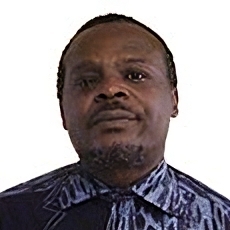
Vincent Kitio
Chief of Urban Energy Unit, UN-HABITAT, is architect from the Institute of Architecture of Venice with a Master Degree on Climate and Architecture in the Tropical Countries. He holds a PhD in Appropriate Energy Technologies for Developing Countries, from the University of Rome la "Sapienza". He is a former lecturer of Environmental Science of Building at the University of Nairobi. He has founded the African Centre for Renewable Energy and Sustainable Technologies (ACREST), a Cameroonian NGO that promotes renewable energy options and appropriate technologies to fight poverty. Vincent is currently Energy Advisor for UN-Habitat with the task of mainstreaming Energy into UN-Habitat’s programmes and activities.
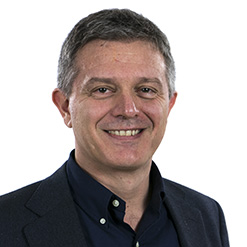
Niccolò Aste
Niccolò Aste, is a Full Professor of the Dept. of Architecture, Built Environment and Construction Engineering.
He has been actively engaged in several National and International research activities related to energy efficiency of the built environment and to the exploitation of renewable energy sources, with particular reference to the topics of PV technology and its building integration.
Over the years, he has significantly contributed to energy research and has more than 100 scientific publications including three books on the aforementioned issues and research themes. Most relevant publications and research activities deal with the building integration of innovative LSC, PV and PV/T components a well as sustainable buildings technology.
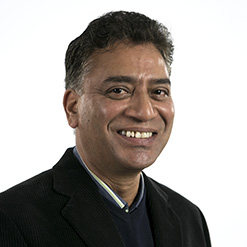
Rajendra S. Adhikari
Rajendra S. Adhikari is currently working as Associate Professor at the Dept. of Architecture, Built Environment and Construction Engineering, Politecnico di Milano.
Over the years, he has been participating in various National and International research projects. His research work is mainly focused on renewable energy, energy efficiency in buildings, energy conservation and low energy technologies. He is the author and co-author of more than 90 publications including two books and scientific papers in various International/National Journals of repute and conferences/seminars.
He has been the member of the editorial board of the international journal ISRN Renewable Energy (The International Scholarly Research Network Publishing). Currently he is the member of the editorial board of Energy and Power (Scientific & Academic Publishing) and Current Advances in Energy Research (American V-King Scientific Publishing).
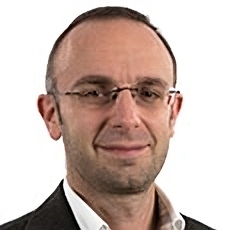
Claudio Del Pero
Claudio Del Pero is an Associate Professor of the Architecture, Built Environment and Construction Engineering Department.
He is actively involved in research and advisory activities related to energy efficiency of the built environment and to the exploitation of renewable energy sources, with particular reference to the topics of PV technology and distributed energy generation.
Over the years he has been involved in various National and International research projects related to the exploitation of renewable energy sources, energy efficiency in the built environment and energy management.
Since 2009 he cooperates with the VISPE association (Italian Volunteers for Solidarity in Emerging Countries) for the design and the construction of stand-alone photovoltaic systems for off-grid users and a field hospital in Burundi.
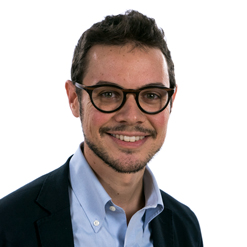
Fabrizio Leonforte
Fabrizio Leonforte is an Associate Professor fellow at Department of Architecture, Built environment and Construction engineering. He has carried out different theoretical and experimental works on renewable energy and energy efficiency in buildings with special focus on the application of hybrid PVT systems.
Since 2013 he is lecturer in two master on the topic of photovoltaic systems and zero energy buildings design at Politecnico di Milano.
He has been also involved as technical advisor in several national and international researches as well as in different project with NGOs and Universities for capacity building of local staff.
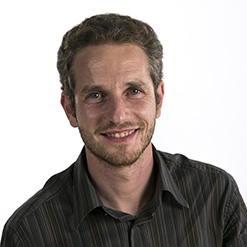
Manlio Mazzon
Manlio Mazzon, graduated in Architecture at Politecnico di Milano in July 2008, has achieved a Ph.D in Technology and Design for Environmental and Building at Politecnico di Milano in January 2016, discussing a thesis on “Development And Use Of Dynamic-State Simulation Tools Suited For Energy Performance Optimization In The Integrated Architectural Design Approach”.
In recent years, he focused on the development of a SketchUp-based interface for building energy dynamic-state simulation carried out by EnergyPlus. Also, he mainly dealt with building energy optimization during the design phase and with energy dynamic-state models and related evaluation tools.
He actively collaborated with teaching activities, both in university and in professional training courses on zero energy buildings issues.
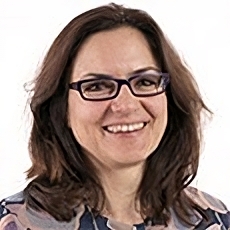
Paola Caputo
Paola Caputo is an Assistant Professor of the Dept. of Architecture, Built Environment and Construction Engineering. She has been actively engaged in several National and International research activities related to energy efficiency and renewable energy sources, with particular reference to the topics of bioenergies and urban energy systems. Over the years, she has contributed to energy researches providing many scientific contributions. She has been also involved in national and international working groups about the mentioned topics.
Contact details
If you have any enquiries about the course or if you need technical assistance please contact pok@polimi.it. For further information, see FAQ page.